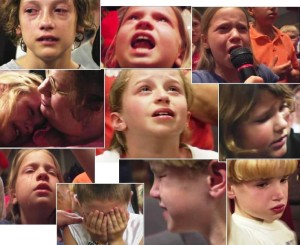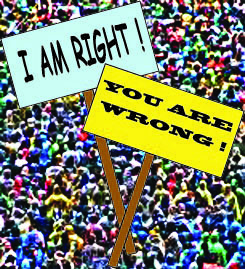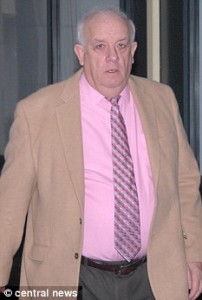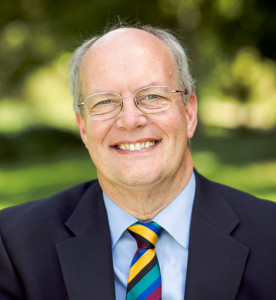 One of the great myths of Christianity is that every ’orthodox’ believer is required to accept the idea that the Bible should be understood ‘literally’. This latter word, placed in inverted commas, lacks a universally agreed meaning and there will always be arguments as to how one should define it with precision. Allowing for a level of vagueness, we can suggest that the word literal will carry for a conservative reader of the Bible the idea that if a narrative seems to record an historical statement, then it must be read in this way. For other more critical readers of the Scriptural text, this attempt to read every narrative text as actual historical material will lead to many problems. Nowhere is this issue more acute than in an attempt to read the first two chapters of Genesis as an historical account of creation. The uncritical reader, guided only by his conservative leaders and guides, is meant to believe that, with a varying number of caveats, the Genesis account reveals the way that universe came into being and God’s part in the process. Such a reader is expected somehow to ignore numerous problems as for example how light existed before the creation of the sun and the moon on the third day of creation. He/she also has to ignore a further fact that not only are there two distinct creation stories in Genesis 1-2, but also that there are other different and distinct creation accounts in other parts of the bible, not least the glorious account in Psalm 104.
One of the great myths of Christianity is that every ’orthodox’ believer is required to accept the idea that the Bible should be understood ‘literally’. This latter word, placed in inverted commas, lacks a universally agreed meaning and there will always be arguments as to how one should define it with precision. Allowing for a level of vagueness, we can suggest that the word literal will carry for a conservative reader of the Bible the idea that if a narrative seems to record an historical statement, then it must be read in this way. For other more critical readers of the Scriptural text, this attempt to read every narrative text as actual historical material will lead to many problems. Nowhere is this issue more acute than in an attempt to read the first two chapters of Genesis as an historical account of creation. The uncritical reader, guided only by his conservative leaders and guides, is meant to believe that, with a varying number of caveats, the Genesis account reveals the way that universe came into being and God’s part in the process. Such a reader is expected somehow to ignore numerous problems as for example how light existed before the creation of the sun and the moon on the third day of creation. He/she also has to ignore a further fact that not only are there two distinct creation stories in Genesis 1-2, but also that there are other different and distinct creation accounts in other parts of the bible, not least the glorious account in Psalm 104.
Returning to the distinct creation narratives in Genesis, we can see two different attempts, not to write history or science, but to expound theology. To put it another way, we have two different theological schools offering to us their two distinctive insights and understandings about the origins of the created universe. Each of these, the scholars claim, emerges from different times and places and no attempt is made by the Biblical writer/compiler in any way to harmonise them. The two accounts each have their own word for God and the style of the two narratives is quite different from the other. Any attempt to suggest that there is a single narrative in these two chapters, one which has to make tortuous attempts to iron out discrepancies, should be rejected. There is absolutely no reason to suppose that the original writer was trying to do anything other than present two accounts of the same event. If any reader misses the double presentation of the creation story, it can only be presumed that they have spent little effort in examining the actual text. As with the story of Noah, they have grown accustomed to listening to a sanitised and harmonised presentation of the story which completely ignores the problems that arise when we try to read the stories as science or history. Also to suggest that either account ever intended to offer an answer to the ‘how’ of creation, the scientific and historical perspective, misses the point of both narratives. The Biblical authors were much more concerned with grappling with the question ‘why’, the theological question.
Looking further at the contrasts in the two stories, we find an intriguing difference in the way that each account begins. One narrative (Genesis 1) records a chaotic watery world which needed to be in some way tamed. The other account (Genesis 2) seems to start with a world totally lacking moisture and needing a mist to create fertility and growth under the stewardship of Adam. Once such contrasts are pointed out, the intelligent reader will not find it difficult to slip into the assumption, shared by many non-conservative Christians over a century or more, that the creation accounts are not and never have been historical records of events that took place at the dawn of time.
Why do these simple observations about the Biblical narrative of creation matter so much? It is because some Christians have made the issue of Creation and Evolution a big one in the politics that surrounds Christian belief, particularly in the States. Political parties and an entire education system in that country are defined in accordance with the stance that is taken by an individual on these questions. Do you believe in Creationism or Evolution? That is the nonsensical dilemma faced by many people who are told that to believe in evolution is somehow destructive of a true Christian identity. The common-sense insight, that what is contained in the first two chapters of Genesis are theologically inspired stories, is not to be tolerated. We are told that we can only speak about science of creation using the language of an ancient people who knew nothing of the scientific discourse of today. That is patently absurd. To say that God created the world is a theological statement and it must be kept distinct from the immensely complicated physics and mathematics that crop up whenever the Big Bang is discussed by those who understand it. A Christian can have creation and evolution together, but each belongs to a totally different area of discourse.
I want to conclude with a quote that I have found in a book on this topic. ‘The time is long past when a literal interpretation of the creation story has any scientific, intellectual, or spiritual merit. They remain, however, a tribute to the wisdom of the compilers who believed that the inclusion of two different creation stories allowed for enough wiggle room to create space for people with different ideas about God and the purposes of creation.’ Our comment would be that the Bible from page one understood the importance of allowing people with different insights to live alongside one another. Would that that were always true today!







